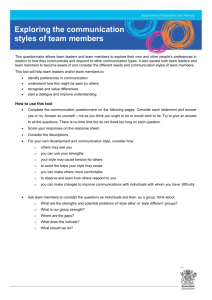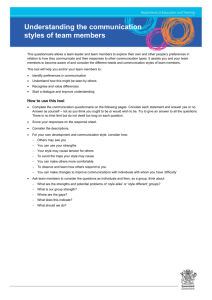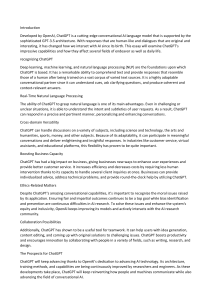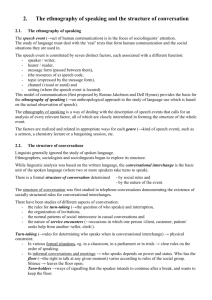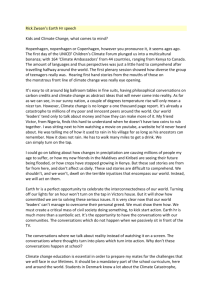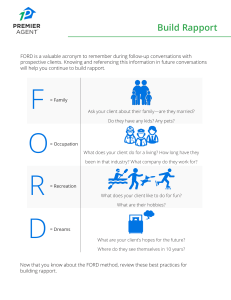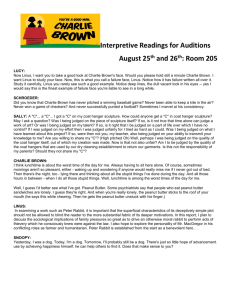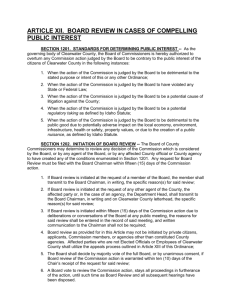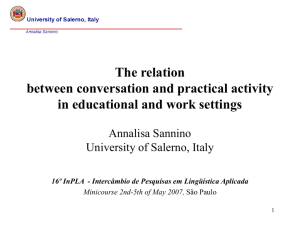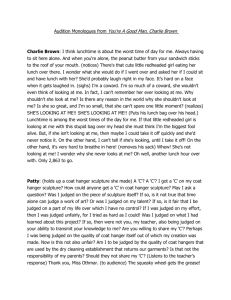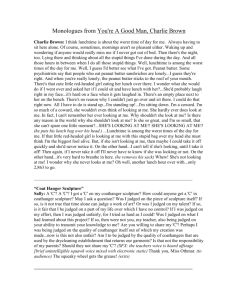Deborah Tannen, You Just Don`t Understand
advertisement
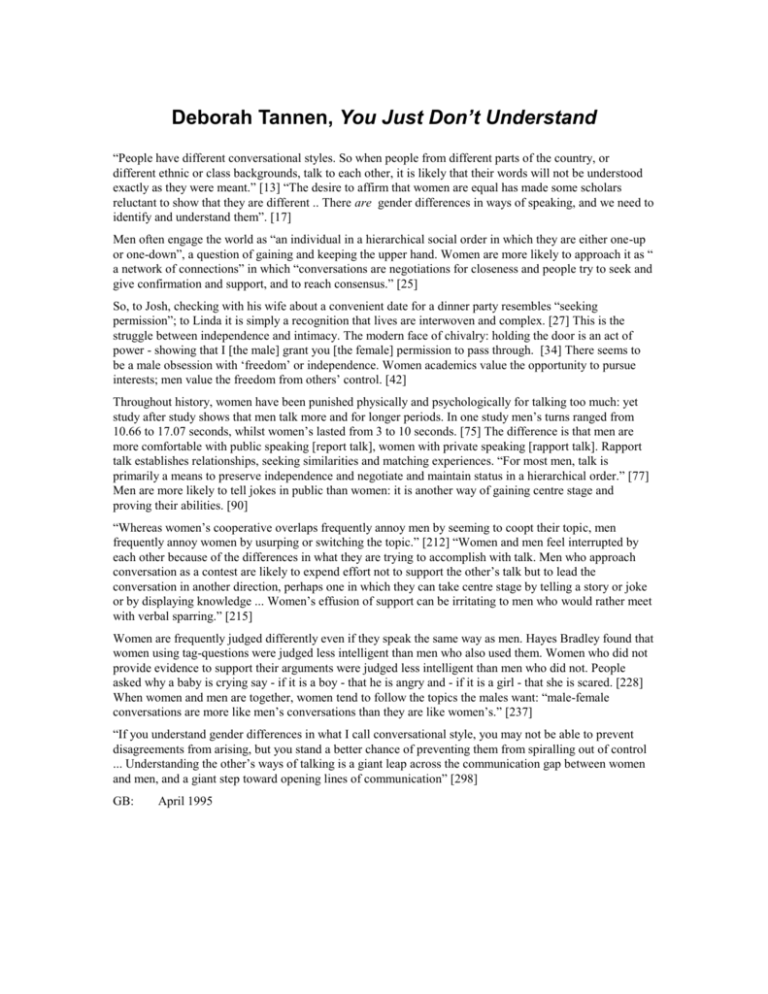
Deborah Tannen, You Just Don’t Understand “People have different conversational styles. So when people from different parts of the country, or different ethnic or class backgrounds, talk to each other, it is likely that their words will not be understood exactly as they were meant.” [13] “The desire to affirm that women are equal has made some scholars reluctant to show that they are different .. There are gender differences in ways of speaking, and we need to identify and understand them”. [17] Men often engage the world as “an individual in a hierarchical social order in which they are either one-up or one-down”, a question of gaining and keeping the upper hand. Women are more likely to approach it as “ a network of connections” in which “conversations are negotiations for closeness and people try to seek and give confirmation and support, and to reach consensus.” [25] So, to Josh, checking with his wife about a convenient date for a dinner party resembles “seeking permission”; to Linda it is simply a recognition that lives are interwoven and complex. [27] This is the struggle between independence and intimacy. The modern face of chivalry: holding the door is an act of power - showing that I [the male] grant you [the female] permission to pass through. [34] There seems to be a male obsession with ‘freedom’ or independence. Women academics value the opportunity to pursue interests; men value the freedom from others’ control. [42] Throughout history, women have been punished physically and psychologically for talking too much: yet study after study shows that men talk more and for longer periods. In one study men’s turns ranged from 10.66 to 17.07 seconds, whilst women’s lasted from 3 to 10 seconds. [75] The difference is that men are more comfortable with public speaking [report talk], women with private speaking [rapport talk]. Rapport talk establishes relationships, seeking similarities and matching experiences. “For most men, talk is primarily a means to preserve independence and negotiate and maintain status in a hierarchical order.” [77] Men are more likely to tell jokes in public than women: it is another way of gaining centre stage and proving their abilities. [90] “Whereas women’s cooperative overlaps frequently annoy men by seeming to coopt their topic, men frequently annoy women by usurping or switching the topic.” [212] “Women and men feel interrupted by each other because of the differences in what they are trying to accomplish with talk. Men who approach conversation as a contest are likely to expend effort not to support the other’s talk but to lead the conversation in another direction, perhaps one in which they can take centre stage by telling a story or joke or by displaying knowledge ... Women’s effusion of support can be irritating to men who would rather meet with verbal sparring.” [215] Women are frequently judged differently even if they speak the same way as men. Hayes Bradley found that women using tag-questions were judged less intelligent than men who also used them. Women who did not provide evidence to support their arguments were judged less intelligent than men who did not. People asked why a baby is crying say - if it is a boy - that he is angry and - if it is a girl - that she is scared. [228] When women and men are together, women tend to follow the topics the males want: “male-female conversations are more like men’s conversations than they are like women’s.” [237] “If you understand gender differences in what I call conversational style, you may not be able to prevent disagreements from arising, but you stand a better chance of preventing them from spiralling out of control ... Understanding the other’s ways of talking is a giant leap across the communication gap between women and men, and a giant step toward opening lines of communication” [298] GB: April 1995
